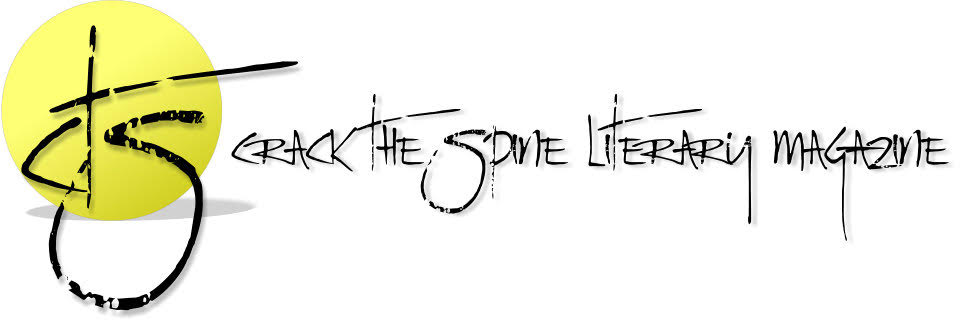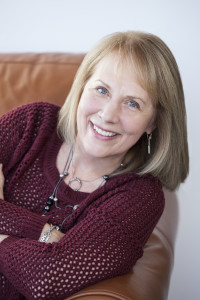Location: I live in Phoenix, but also spend a lot of time in southern California.
Education: Certificate in Creative Nonfiction, Stanford University; PhD University of California, Riverside: English; MFA Western Michigan University: Poetry and Fiction; MA Western Michigan University: English
The Writer
How long have you been writing?
When I was a kid I wrote a few poems, but even before that I remember feeling as if I was a writer who hadn’t yet written. Then I went through an enormous amount of turmoil in my teens and survival edged out writing. When I began to notice the world around me, I applied to grad school in creative writing.
Do you see writing as a career?
Many writers make a career by combining their writing with teaching. There are sabbaticals and residencies that allow for intense periods of writing. But I went at it differently. I decided to work on a PhD in English after I completed my creative writing MFA. That led me into teaching English—and away from creative writing. Between academic and teaching concerns and my two kids I didn’t have much time or mind for anything else. Then I retired early from teaching because I was laid up for a year recovering from a tumor in my foot. When I recovered, both children had gone off to college, and I finally had the time to write.
Now writing is my career—not in terms of income produced [pause for a long belly laugh]—but because I am passionately and seriously focused on my writing at long last. That said, I don’t write every day. Last month I volunteered in the Tupelo Press 30/30 Project and wrote a poem a day to benefit the press. I realized that I had never written every day for a full month before. After a few hours writing/revising/researching I am exhausted, so actual time spent writing is usually less than 20 hours a week—sometimes much less, especially since I travel quite often.
The Work
Tell us about your work in Crack the Spine.
My short story “Small Solace” takes a look at a very small young man called Dab who works as a sales person at a luggage store. His boss and co-workers don’t show him respect, but he knows what makes him happy.
Is there a main message or theme of this piece?
If I knew the main theme or message of the piece, I’d have to kill the story.
What inspired this story?
I grew up working in my father’s luggage and leather goods store and ultimately bought and ran the store with my husband, so I know the environment intimately. But a setting alone doesn’t make a story. The inspiration for the story came from a customer. She shopped there regularly, handling the wallets, in particular, with loving care. There were rumors that surrounded her. Her mild appearance was at odds with the stories we heard. Of course, I’m being vague because I don’t want to give away what happens in the story! I blended some men I have known with this woman to create the character of Dab.
Tell us about another project you’re working on.
My first book, Doll God, a collection of poetry, was published in January by Aldrich Press. I just learned that it is a finalist in the New Mexico-Arizona Book Awards. The poems record the spirit world found in human-made and natural objects. I’m fascinated by the twin poles of art and nature. In one way or another, I spent over twenty years pulling this book together. The next one won’t take me so long, I’m pretty sure. The book is available on Amazon.
The Methods
What time of day makes you most productive as a writer?
I’m not good at writing in the morning because I like to clear my mind before I begin to write. So I do other work, chores, and errands, in the morning, saving the afternoon for writing. Sometimes I write in the evening, but I prefer to drink a glass of wine.
How many drafts do I go through?
I really try not to count. And I make so many tiny changes that if I counted each one as a new draft I’d scare myself if I did.
What is your usual starting point for a piece?
I write poetry, fiction, and nonfiction, so I probably have a different starting point for pieces depending on genre. For fiction, I need to have a character in mind and he or she needs a problem.
How do you react to editorial rejections of your work?
Rejections? Who, me? I like to record the rejection and file the rejection email very quickly. I don’t want it sitting in my inbox annoying me with its ickiness. I like to forget it as fast as possible. I’m happy when I get an acceptance and like to share my joy with those close to me. I think my daughter, an actor (another career that experiences a lot of rejection), is happiest for me.
The Madness
What is your favorite book?
My favorite book might be Harriet Arnow’s The Dollmaker, which is a beautiful novel. Maybe my book was inspired in some way by it.
What is the greatest occupational hazard for a writer?
The greatest occupational hazard for THIS writer is not getting enough exercise because I use my exercise time to write. I wear a Fitbit One and make sure I get in my 10,000 steps and 10 flights of stairs every day so that I don’t get stuck in a permanent sitting position.
Who would play you in the movie of your life?
Some people think that Sissy Spacek would be a good person to play me, but it might be because we have the same messy hair thing going on. My ideal might be Jennifer Lawrence.
Vanilla or Chocolate?
Chocolate with salt
“No Thanks” or “I’ll have another”?
I’ll have another and another
Dogs or Cats?
Cats!!!!!!!!!!!!!!!
Additional Reading on Luanne


I love Luanne’s writing. Thanks for the opportunity to get to know her better!
Luanne is an inspiring writer who is open, cares about others and shares ideas which I have learned through following her blog.
I find her incorporating her personal experiences creates believable stories, as well as showing relevance to them, too. I liked her airplane ride story she wrote awhile back, for example, listening to a somewhat annoying teen aged passenger. It held a positive and memorable message. Sincerely, Robin O. Cochran